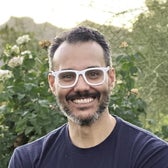Growing Cells And Innovation: WPI Launches Biofabrication Graduate Program
Say you're a researcher on the trail of something right out of science fiction — a tiny device made entirely out of biological materials that can repair diseased heart tissue, or take the place of a pacemaker without the risk of infection or immune response. The questions you'd be facing include ones about cell growth and laboratory conditions, but also things like where to look for funding and whether to seek regulatory approval first: in the U.S. or in Europe.
With the help of a $3-million National Science Foundation award, Worcester Polytechnic Institute is launching a new graduate program in biofabrication that aims to help new scientists deal with both sets of questions.
Terri Camesano, principal investigator for the new program, said biofabrication is a growing field within biomedical science. It involves making three-dimensional "scaffolding" out of biological polymers or other organic material and using it to introduce therapeutic lab-grown cells into the body. Biofabricated materials may help heal wounds, allow diseased tissue to regrow or replace medical devices like pacemakers or monitoring devices. Regenerative therapies, in particular, are attracting a great deal of attention, Camesano said. "People's lives are improved through biomedical devices, but the devices are made out of material that's foreign to the body," she said.
New Company: VitaThreads
Just last month, two WPI faculty members announced that they'd formed a new biofabrication company, VitaThreads LLC. They plan to commercialize a kind of biologically based "microthread" that can deliver stem cells to help regenerate tissues in people with sports injuries or heart problems.
The graduate program will combine basic science in the lab with lectures by patent attorneys, internships with biotech companies and international experiences for students. In their third year, program fellows will be able to compete for a funding pool that could pay for prototyping or pilot studies to move research toward commercialization.
Frank Hoy, who is leading the program on the business side, said it's intended to be something that can help new researchers, whether they go into business for themselves or join established companies or institutions.
"They can't just wait for somebody to drop a clearly defined problem in their lap," he said. "They've got to be the opportunity seekers."
Hoy said old educational models provided training in entrepreneurship only to business majors, while professors assumed promising students in other fields would follow them into academia. Now, he said, business majors are most likely to fill niches in human resources or accounting, while engineers or scientists go on to start companies.
Hoy noted that, already, some WPI students are starting new businesses while still in school.
He said the school considered including an actual incubator space for new businesses as part of the new program but decided against it in the end. Instead, he said, the program will function in some ways as an "incubator without walls," including a mentoring group.
Hoy said the program will also work closely with Massachusetts Biomedical Initiatives, which has lab space.
Of course, he said, some students may also get started in business in time-honored startup fashion by working in their own garages or basements.
The new program reflects WPI's continuing growth in the life sciences, which has long been a major focus for the school. This fall, the university opens its Biomanufacturing Education and Training Center, a 10,000-square-foot building with its own biomanufacturing plant. The center will help train workers for work in biotech companies like Genzyme or Bristol-Myers Squibb.
Hoy said efforts like these at WPI are part of a much larger vision of Worcester as a growing center for biotech businesses.
"There is a core here that is going to make this part of Massachusetts a desirable place for these technology-based companies," he said. n
Read more
Worcester Incubator Aims To Get Entrepreneurs ‘Off The Couch’ And Into Start-up Mode
School-Business Bond Blossoms From STEM Outreach
A Business Education For Scientists: Biotech Group Helps Startups













0 Comments